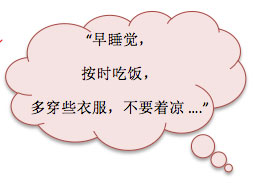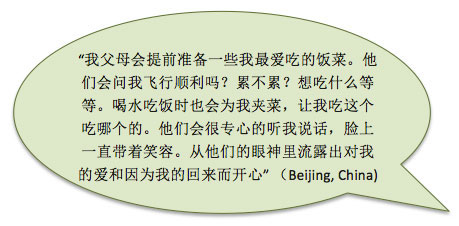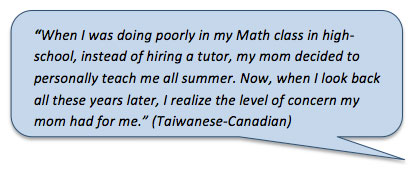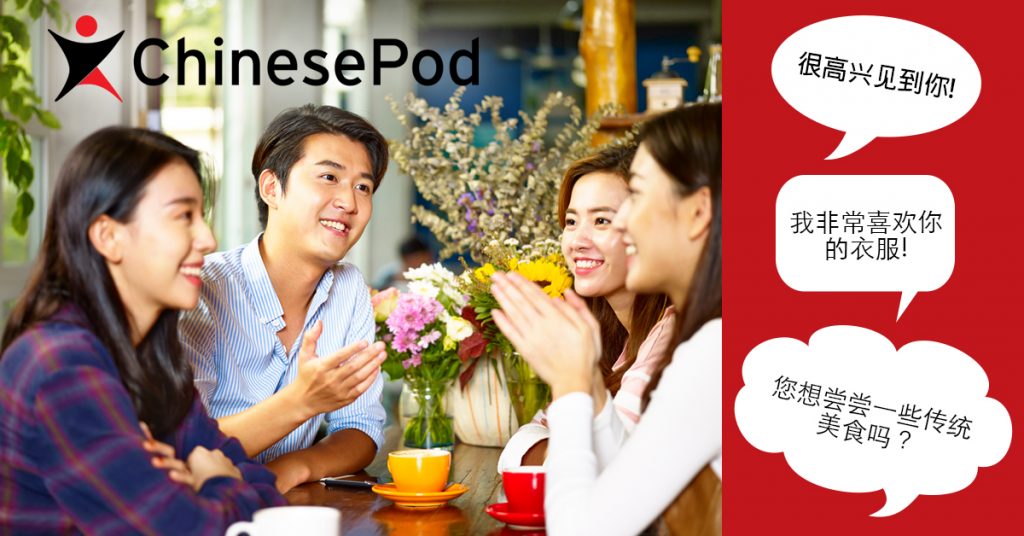3 Ways Chinese Parents Show Us “I love you” is Over-rated
My parents have never told me they love me…
Before you start feeling sorry for me, let me tell you something else. Most likely, if your Chinese friends, co-workers, or classmates were born before the 1990s, they too were unlikely to have heard these three simple yet profound words from their parents. Now, before you start feeling sympathetic for the whole Chinese race, let me clarify. Traditionally, Chinese parents don’t say I love you. It’s that simple. “Wǒ ài nǐ|我爱你” just sounds awkward and strange and overly mushy.
This doesn’t mean Chinese parents lack love for their children. On the contrary, every parent loves their children and it spans across all ethnicities and geographic borders. But each culture has a different way of expressing love. In the West, we say “I love you.” Love is expressed with direct words. In Chinese culture, however, actions speak much louder than words. Instead of saying “Wǒ ài nǐ|我爱你” directly, Chinese parents have traditionally preferred to take a more quiet approach to express their support and care for their children as represented in various aspects of their children’s lives. They often do this through selfless actions rather than words. And when words are spoken, indirect ways to express care are preferable to directly stating their love.
So you may be wondering, in the absence of “Wǒ ài nǐ|我爱你” what exactly do Chinese parents say and do to express their love? Below are 3 common examples, showing the Western world that perhaps, saying “I love you” is overrated.
- Reading between the lines: Chinese parents teach us the power of embedded meaning within words, portraying a deep level of concern and care for their children.
If you have had the opportunity to witness interactions between Chinese parents and children, you most likely have heard these common phrases: “sleep early (zǎo shuìjiào|早睡觉), make sure you eat on time / regularly (ànshí chīfàn|按时吃饭), put on more clothes or you’ll catch a cold (duō chuān xiē yīfú, bùyào zháoliáng|多穿些衣服不要着凉). These are only a few yet very typical examples that Chinese parents use to express words of “zhǔfù|嘱咐”- words Chinese parents use to tell their children to take care of themselves and stay healthy. These words, while often seemingly “luōsuo|啰嗦” - or nagging - are some of the most common day-to-day ways Chinese parents express their love. In the eyes of Chinese parents, no matter the age, their children are forever children.
likely have heard these common phrases: “sleep early (zǎo shuìjiào|早睡觉), make sure you eat on time / regularly (ànshí chīfàn|按时吃饭), put on more clothes or you’ll catch a cold (duō chuān xiē yīfú, bùyào zháoliáng|多穿些衣服不要着凉). These are only a few yet very typical examples that Chinese parents use to express words of “zhǔfù|嘱咐”- words Chinese parents use to tell their children to take care of themselves and stay healthy. These words, while often seemingly “luōsuo|啰嗦” - or nagging - are some of the most common day-to-day ways Chinese parents express their love. In the eyes of Chinese parents, no matter the age, their children are forever children.
- The way to a child’s heart is through the stomach: Chinese parents show us how the importance of food in Chinese culture is closely tied to expressions of love and care.
When a son or daughter returns home for a visit – perhaps from studies abroad or from working in  another city – it is uncommon for Chinese parents to say “we love you” or “we miss you.” Instead, upon a child’s return home, parents often choose to express these emotions through food. As with this example from a friend who returned home to Beijing after living abroad, it is common for Chinese parents to show their excitement by preparing their son or daughter’s favorite dishes. Furthermore, they selflessly save the best and most delicious items for their child, insisting they don’t need any for themselves. Being recipient to these selfless acts can often be more heartwarming than hearing “I love you” or “I miss you.”
another city – it is uncommon for Chinese parents to say “we love you” or “we miss you.” Instead, upon a child’s return home, parents often choose to express these emotions through food. As with this example from a friend who returned home to Beijing after living abroad, it is common for Chinese parents to show their excitement by preparing their son or daughter’s favorite dishes. Furthermore, they selflessly save the best and most delicious items for their child, insisting they don’t need any for themselves. Being recipient to these selfless acts can often be more heartwarming than hearing “I love you” or “I miss you.”
- Wǒmen dōu shì yījiā rén|我们都是一家人 (We’re all one family): Chinese parents put their children’s well-being before their own and make sacrifices in the form of time and money.
Lastly, but perhaps most importantly, it is widely known that family plays an important role in Chinese culture. From small things to large, Chinese parents show they have their children’s best interests in everything they do, and spend more time worrying and thinking about their children’s lives than they do for their own. Similar to many other cultures around the world, they want to ensure they have done everything they could to give their children a brighter future or set things up so their children have the best chance to succeed in life. Two ways Chinese parents provide support for their children is through time and money.
Time is priceless
In the West where it is commonly believed that time is priceless, what better way to express love for
someone? Chinese parents do this by often volunteering to take care of their grandchildren to relieve stress (both financial and emotional) their child may experience balancing work and taking care of a baby. Chinese parents also do this by personally investing their own time in teaching their children whenever they can, as portrayed in a personal example shared by a Taiwanese-Canadian. However, of course, it needs to be mentioned that this level of time-commitment and concern can sometimes backfire and be viewed negatively by those on the receiving end. Take the Shanghai marriage market for example (Rénmín Gōngyuán Xiāngqīn|人民公园相亲角). Every week parents flock there to find a suitable spouse for their unmarried children, often without their child’s knowledge or consent.
may experience balancing work and taking care of a baby. Chinese parents also do this by personally investing their own time in teaching their children whenever they can, as portrayed in a personal example shared by a Taiwanese-Canadian. However, of course, it needs to be mentioned that this level of time-commitment and concern can sometimes backfire and be viewed negatively by those on the receiving end. Take the Shanghai marriage market for example (Rénmín Gōngyuán Xiāngqīn|人民公园相亲角). Every week parents flock there to find a suitable spouse for their unmarried children, often without their child’s knowledge or consent.
My money is your money
Traditional Chinese families typically provide financial support as best they can to all family members. The phrase “Wǒmen dōu shì yījiā rén|我们都是一家人” reminds family members that there is no need to be overly polite. As a family, they will help each other in times of need. It is common nowadays in China, as well as with overseas Chinese immigrants, that if parents are financially advantaged, they will help buy a condo or a house for their children after they enter the workforce or get married. If not financially advantaged, parents will still try to give as much as they can to help relieve the stress of such life big purchases. Education plays a significant role in Chinese culture, and working hard so that their children can get into a good school, or even studying abroad for university is a dream for many Chinese parents. To achieve this dream, especially for less-affluent families, it can mean parents selflessly work extra-hard their whole lives, sacrificing their own happiness in exchange for their children’s bright future.
However, times are changing, and there’s no country in the world that is changing faster than China. Anyone born before the 1990’s will likely have similar experiences to those shared in this article. Yet, nowadays, these children who had never heard “I love you” from their own parents are now raising young families themselves, and are therefore changing the traditional family dynamic as we speak. Young Chinese children in the new millennium are becoming more and more used to hearing “Wǒ ài nǐ|我爱你”. Furthermore, with the growth of overseas Chinese, they often raise their children using a mix of traditional Chinese and Western values. As times continue to change, hopefully the positive meaning behind the traditional Chinese approaches to expressing love, as described in this article, will still continue to be appreciated.
Have you heard any other ways Chinese parents express their love for their children? Share your stories in the comments below!
Eng Chan
Latest posts by Eng Chan (see all)
- International Women’s Day doesn’t need these two words - March 7, 2019
- Chinese New Year Red Envelopes: How to Give and Receive “hóngbāo” Like a Local - February 9, 2019
- 6 Simple Ways Anyone Can Celebrate Chinese New Year - February 7, 2019


